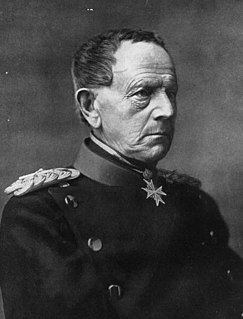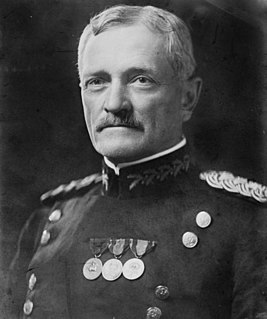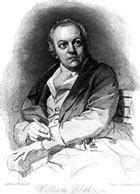A Quote by Richard Whately
As a science, logic institutes an analysis of the process of the mind in reasoning, and investigating the principles on which argumentation is conducted; as an art, it furnishes such rules as may be derived from those principles, for guarding against erroneous deductions.
Related Quotes
Those who are accustomed to judge by feeling do not understand the process of reasoning, because they want to comprehend at a glance and are not used to seeking for first principles. Those, on the other hand, who are accustomed to reason from first principles do not understand matters of feeling at all, because they look for first principles and are unable to comprehend at a glance.
Strategy is a system of makeshifts. Is is more than a science. It is bringing knowledge to bear on practical life, the further elaboration of an original guiding idea under constantly changing circumstances. It is the art of acting under the pressure of the most demanding conditions...That is why general principles, rules derived from them, and systems based on these rules cannot possibly have any value for strategy.
Reasoning is compared to understanding as movement is to rest, or acquisition to possession.... Since movement always proceeds from something immovable, and ends in something at rest, hence it is that human reasoning, in the order of inquiry and discovery, proceeds from certain things absolutely understood--namely, the first principles; and, again, in the order of judgment, returns by analysis to first principles, in the light of which it examines what it has found. Now it is clear that rest and movement are not to be referred to different powers, but to one and the same.
We profess to teach the principles and practice of medicine, or, in other words, the science and art of medicine. Science is knowledge reduced to principles; art is knowledge reduced to practice. The knowing and doing, however, are distinct. ... Your knowledge, therefore, is useless unless you cultivate the art of healing. Unfortunately, the scientific man very often has the least amount of art, and he is totally unsuccessful in practice; and, on the other hand, there may be much art based on an infinitesimal amount of knowledge, and yet it is sufficient to make its cultivator eminent.
In each succeeding war there is a tendency to proclaim as something new the principles under which it is conducted. Not only those who have never studied or experienced the realities of war, but also professional soldiers frequently fall into the error. But the principles of warfare as I learned them at West Point remain unchanged.
I would call the attention of the reader to the difference between "reason" and "reasoning." Reason is a light, reasoning a process. Reason is a faculty, reasoning an exercise of that faculty. Reasoning proceeds from one truth to another by means of argumentation. This generally involves the whole mind in labor and complexity. But reason does not exist merely in order to engage in reasoning. The process is a means to an end. The true fulfillment of reason as a faculty is found when it can embrace the truth simply and without labor in the light of single intuition.
Art is the microscope of the mind, which sharpens the wit as the other does the sight; and converts every object into a little universe in itself. Art may be said to draw aside the veil from nature. To those who are perfectly unskilled in the practice, unimbued with the principles of art, most objects present only a confused mass.
But this I know; the writer who possesses the creative gift owns something of which he is not always master--something that at times strangely wills and works for itself. He may lay down rules and devise principles, and to rules and principles it will perhaps for years lie in subjection; and then, haply without any warning of revolt, there comes a time when it will no longer consent.
Masonry, according to the general acceptation of the term, is an art founded on the principles of geometry, and devoted to the service and convenience of mankind. But Freemasonry, embracing a wider range and having a nobler object in view, namely, the cultivation and improvement of the human mind, may with more propriety be called a science, inasmuch as, availing itself of the terms of the former, it inculcates the principles of the purest morality, though its lessons are for the most part veiled in allegory and illustrated by symbols.
The principles of logic and mathematics are true simply because we never allow them to be anything else. And the reason for this is that we cannot abandon them without contradicting ourselves, without sinning against the rules which govern the use of language, and so making our utterances self-stultifying. In other words, the truths of logic and mathematics are analytic propositions or tautologies.
[My Book] will endeavour to establish the principle[s] of reasoning in ... [geology]; and all my geology will come in as illustration of my views of those principles, and as evidence strengthening the system necessarily arising out of the admission of such principles, which... are neither more nor less than that no causes whatever have from the earliest time to which we can look back, to the present, ever acted, but those now acting; and that they never acted with different degrees of energy from that which they now exert.
Long intervals frequently elapse between the discovery of new principles in science and their practical application... Those intellectual qualifications, which give birth to new principles or to new methods, are of quite a different order from those which are necessary for their practical application.
Among all the liberal arts, the first is logic, and specifically that part of logic which gives initial instruction about words. ... [T]he word "logic" has a broad meaning, and is not restricted exclusively to the science of argumentative reasoning. [It includes] Grammar [which] is "the science of speaking and writing correctly-the starting point of all liberal studies."
That discipline which corrects the eagerness of worldly passions, which fortifies the heart with virtuous principles, which enlightens the mind with useful knowledge, and furnishes to it matter of enjoyment from within itself, is of more consequence to real felicity than all the provisions which we can make of the goods of fortune.






































